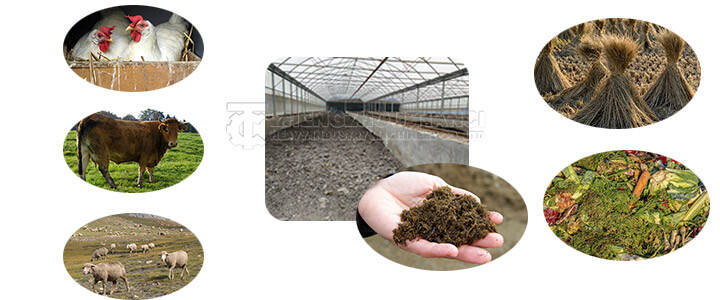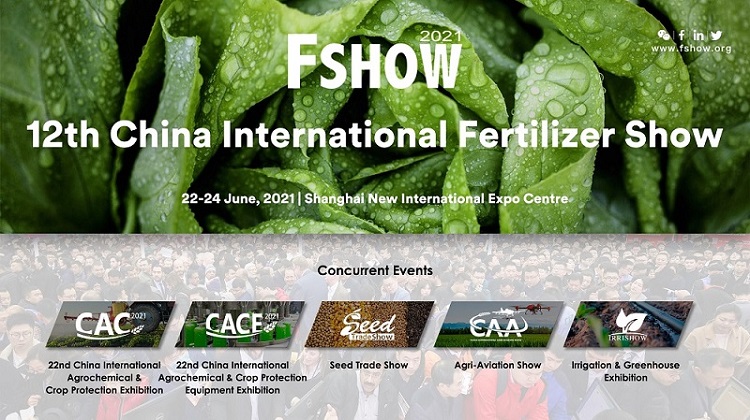
Exhibition time: 17-19 March, 2026 Shanghai, China
 中文
中文

Exhibition time: 17-19 March, 2026 Shanghai, China
 中文
中文
Organic fertilizer is a kind of fertilizer containing organic matter, which provides a variety of inorganic and organic nutrients to crops and improves soil. Effect:
1. Organic fertilizer can increase soil organic matter and nutrient content, improve soil fertility, improve soil microbial population structure, increase the number of microorganisms, improve soil biological activity, and further improve soil quality.
2. Improve the quality of products and reduce the accumulation of harmful substances. Organic fertilizer can promote the transformation of nitrate in crops and reduce the accumulation of nitrate in agricultural products. Compared with the application of chemical fertilizers, the average nitrate content was reduced by 15%, and the storage time of crops was prolonged.
3. Inhibiting soil-borne diseases and improving crop rhizosphere environment. Organic fertilizer can increase microbial proliferation, improve crop rhizosphere microenvironment, regulate soil biological structure and quantity, reduce soil-borne diseases, and alleviate soil continuous cropping obstacles.
Raw material of organic Fertilizer
Organic manure fermentation raw materials, the main material is usually livestock manure, chicken manure nutrient content is the highest. Supplementary materials are straw, straw, dead leaves, humic acid, grass ash, etc. The fermentation effect of fresh feces is better than that of old feces. If there are more old feces, fresh feces should be added properly. If the water content is high, it should be treated in advance.
Fermentation of organic wastes is aerobic fermentation. Under the action of aerobic bacteria, harmful substances produced in the decomposition process of organic substances in animal manure are removed, and water in animal manure is evaporated to make it a high-quality organic fertilizer which is easy to handle. The following three aspects should be paid attention to during fermentation:
Temperature: In order to make bacteria fully active, appropriate temperature is needed. The optimum temperature for organic fertilizer fermentation is 60-70 ℃.
Moisture: In order to aerobic fermentation, it is necessary to have moderate moisture. Excessive moisture content will lead to poor ventilation and difficult oxygen supply, leading to poor fermentation. Low water content, insufficient water, poor fermentation. For high quality fermentation, 35% - 55% water content should be ensured during organic fertilizer fermentation.
Oxygen: For aerobic fermentation, it is very important to supply sufficient air to the fermentation tank. Mechanized flipping of the flipper ensures the uniformity of air supply and saves a lot of labor. Untreated animal manure is acidic, and PH8.0-9.0 is the most suitable for bacterial activity. Aerobic fermentation produces a large amount of NH3, which makes the PH value alkaline and provides an environment in which aerobic bacteria can easily move. Therefore, the proliferation of aerobic bacteria can be restored by improving PH and supplying oxygen.
Compost Turner Machine
It is used for fermentation and turning of livestock and poultry manure, sludge garbage, filter mud of sugar mill, dregs, cake and sawdust of straw. It is widely used in fermentation and maturation of organic fertilizer plant, compound fertilizer plant, sludge garbage plant, horticulture farm and bisporus mushroom plantation plant. The machine includes power transmission device, walking device, lifting device, stacking device, transfer vehicle, etc. The fermentation tank matched with the fermentation tank can be discharged continuously or in batches, with high efficiency, stable operation, durability and even turnover.

Fermentation of organic compost goes through four processes
(1) In the early stage of fermentation, the microorganisms in compost are mainly of moderate temperature and aerobicity, and the most common are non-spore bacteria, spore bacteria and molds. They start the fermentation process of composting, and produce a lot of heat by decomposing easily decomposed organic substances (such as simple sugar, starch, protein, etc.). They continuously raise the composting temperature from about 20 C to 40 C, which is called the heating stage.
(2) In the high temperature stage, with the increase of temperature, the thermophilic microorganisms gradually replaced the mesophilic species and played a leading role. The temperature continued to rise, generally within a few days, it reached above 50 C, and entered the high temperature stage. In the high temperature stage, thermophilic actinomycetes and thermophilic fungi become the main species. They decompose the complex organic matter (such as cellulose, hemicellulose, pectin, etc.) in the compost strongly, accumulate heat, and the composting temperature rises to 60-70 C, even up to 80 C. Thereafter, most of the good thermophilic microorganisms die or enter dormant state (more than 20 days), which plays an important role in accelerating the composting maturity. The improper composting only has a very short high temperature period, or can not reach the high temperature at all, so the maturation is very slow, and can not reach the semi-maturity state in half a year or longer.
(3) During the cooling stage, most of the cellulose, hemicellulose and pectin substances have been decomposed after a certain period of high temperature, leaving complex components (such as lignin) which are difficult to decompose and newly formed humus. The activity of microorganisms is weakened and the temperature gradually drops. When the temperature drops below 40 C, mesophilic microorganisms become the dominant species.
(4) If the cooling stage comes early, it indicates that the composting conditions are not ideal and the decomposition of plant substances is insufficient. At this time, the compost can be turned over, and the accumulated materials can be mixed evenly to produce a second heating and heating, so as to promote the composting maturity. During the composting stage, the volume of compost decreases and the composting temperature drops to a little higher than the temperature. At this time, the compost should be compacted, resulting in anaerobic state, which weakens the mineralization of organic matter, so as to help keep weight.
From Huaqiang Heavy
